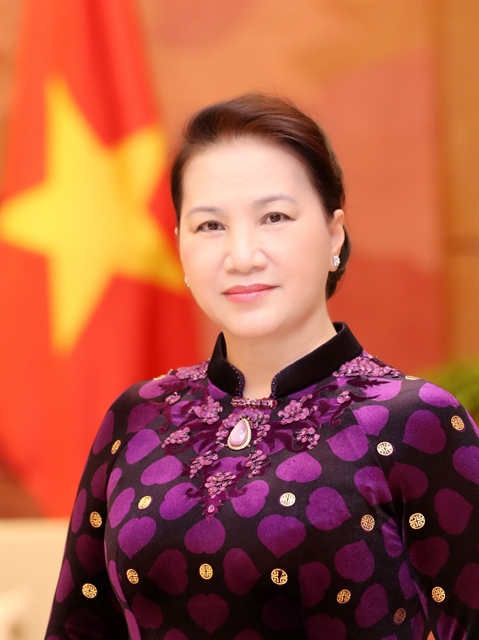 Politics & Law
Politics & Law


|
| Chairwoman of the National Assembly (NA) Nguyễn Thị Kim Ngân |
HÀ NỘI — Chairwoman of the National Assembly (NA) Nguyễn Thị Kim Ngân and a high-ranking delegation of the Vietnamese NA left Hà Nội on Sunday for official visits to Russia and Belarus.
Her visit to Russia is being made at the invitation of Chairwoman of the Federation Council V. Matviyenko and Chairman of the State Duma of Russia V. Volodin.
She will visit Belarus from December 12 at the invitation of Chairman of the Council of the National Assembly Mikhail Myasnikovich and Chairman of the House of Representatives of the National Assembly Vladimir Andreichenko.
She is being accompanied by Deputy Prime Minister Vương Đình Huệ and Vice Chairman of the National Assembly Uông Chu Lưu, among other senior officials.
This will be Ngân’s first visits to Russia and Belarus as NA Chairwoman, aiming to bolster the comprehensive strategic partnership with Russia, and traditional friendship and multi-faceted relations with Belarus, while enhancing co-operation between the Vietnamese NA and the Russian and Belarusian legislatures.
In an interview granted to the Vietnam News Agency on the threshold of the visit to Russia, Vietnamese Ambassador to Russia Ngô Đức Mạnh said Russia was one of the country's most reliable partners, and Ngân's visit was another illustration of their special and multi-faceted relations.
The diplomat said visits by high-level leaders of the two countries over the past year showed the bilateral comprehensive, strategic and co-operative partnership was at its best development stage.
He added the coming visit was of great importance as it continued to highlight Việt Nam’s policy attaching importance to and wishing to further consolidate its relations with Russia.
During her stay in Russia, Ngân would preside over the first meeting of the inter-parliamentary co-operation committee between Russia’s State Duma and Việt Nam’s National Assembly, a new co-operation mechanism established between Việt Nam’s NA and a foreign parliament, Mạnh stressed, highlighting that Ngân would for the first time deliver a speech at a plenary meeting of the Russian Federal Council.
The pivotal year of 2019 was drawing to a close with many prominent achievements in bilateral relations, the diplomat said, elaborating that two-way trade was forecast to increase by 30 per cent and the number of Russian visitors to Việt Nam could reach 650,000.
The two countries had also pledged to continue oil and gas exploration and exploitation in the East Sea within Việt Nam’s sovereignty.
With the more than 120 events over the past year, 2019 marked a new page in the history of bilateral relations, Mạnh said, expressing his belief that the future would hold many more successes, especially through parliamentary channels, thus helping to further consolidate and deepen the Việt Nam-Russia comprehensive strategic partnership and contribute to prosperity of each country, and for peace, stability, co-operation and development of the region and the world.
Việt Nam and Russia set up diplomatic ties in 1950. The two countries established a strategic partnership in 2001 and upgraded it to the level of a comprehensive strategic partnership in 2012.
The two sides have maintained a number of co-operation and dialogue mechanisms, such as the annual strategic dialogue on diplomacy, defence and security at deputy foreign ministerial level and the strategic defence dialogue at deputy ministerial level.
Two-way trade reached US$4.5 billion in 2018, a 28.5 per cent increase from the previous year. Trade also reached $3.4 billion in the first nine months of this year. Việt Nam mainly exported phones, clothing, agricultural products and seafood to Russia, while importing oil and petroleum, steel, fertiliser and machinery.
As of February 2019, Việt Nam was home to 127 FDI projects run by Russia, worth more than $950 million, mostly in mining, oil and gas, manufacturing, and processing
Việt Nam had invested nearly $3 billion in projects in Russia, such as joint venture Rusvietpetro and TH Group’s hi-tech dairy farming project. — VNS




